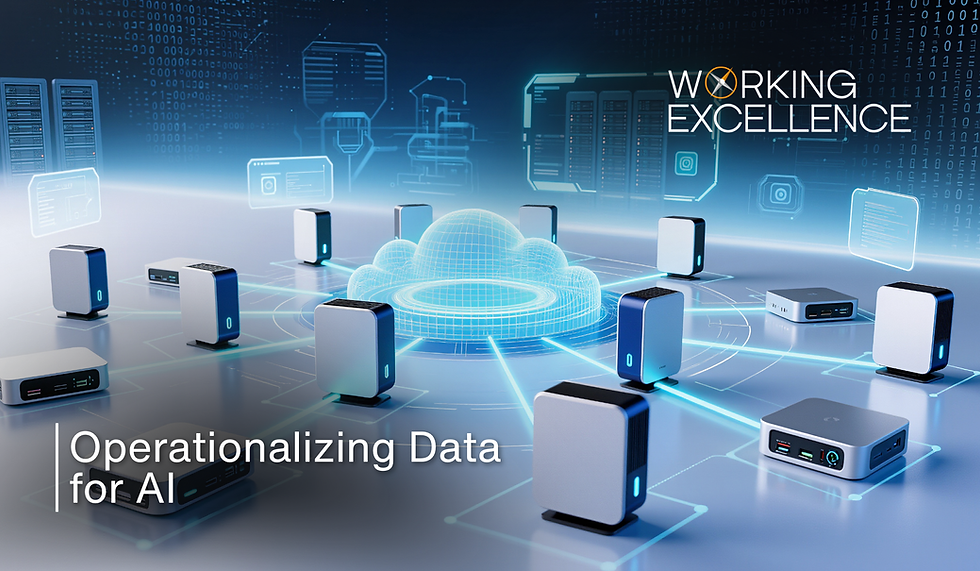Revolutionizing Wealth Management: The Impact of Generative AI
- Jerry Garcia

- Nov 2, 2024
- 2 min read
In a groundbreaking shift, the wealth management sector is embracing generative AI to enhance efficiency, improve client experiences, and drive innovation. This transformation is evident through various initiatives, including SEI's recent launch of its generative AI framework, SEIGPT, aimed at optimizing internal processes and client services.
Key Takeaways
Generative AI is reshaping wealth management by enhancing decision-making and client engagement.
SEI's SEIGPT framework is a significant step towards integrating AI into wealth management operations.
The generative AI market in finance is projected to grow significantly, indicating a shift towards digital solutions.
The Rise of Generative AI in Wealth Management
The financial industry is witnessing a paradigm shift as generative AI technologies redefine investment decision-making and the delivery of financial services. The global market for wealth management platforms is expected to grow from USD 3.67 billion in 2021 to USD 8.15 billion by 2027, reflecting a robust CAGR of 14.56%. Similarly, the generative AI market in finance is projected to expand from USD 1.09 billion in 2023 to USD 9.48 billion by 2032, highlighting the increasing adoption of AI-driven solutions.
SEI's SEIGPT Framework
SEI has launched SEIGPT, a new framework designed to build generative AI applications that enhance efficiency and productivity. This initiative follows the establishment of SEI's AI Center of Excellence in 2023. Currently, SEIGPT is utilized internally to improve client service, process automation, and contract analysis, among other areas. With approximately 400 employees using SEIGPT applications, the framework aims to streamline workflows and enhance data-driven decision-making.
Transformative Impact on Investment Execution
Generative AI is not just about automation; it is about transforming how wealth is managed. By leveraging advanced natural language processing capabilities, firms can improve predictive accuracy and deliver personalized investment strategies. This technology allows for real-time adjustments based on market conditions, enhancing client interactions and optimizing portfolio management.
Enhancing Operational Efficiency
The integration of generative AI into wealth management operations is leading to significant improvements in operational efficiency. For instance, AI-driven sentiment analysis tools enable investment teams to gauge market sentiment independently, while generative AI can automate repetitive tasks such as document analysis and client onboarding. This not only reduces errors but also frees up time for strategic financial analysis.
Addressing Implementation Challenges
While the benefits of generative AI are clear, the implementation process can be complex. Organizations must define clear objectives and create a roadmap for AI integration. Identifying specific use cases and starting with pilot projects can help organizations test AI applications in a controlled environment. Additionally, comprehensive training for staff and stringent data security measures are essential for successful integration.
Conclusion
As the wealth management sector continues to evolve, the adoption of generative AI will play a pivotal role in shaping its future. By embracing these technologies, financial institutions can enhance their services, improve operational efficiency, and provide more personalized solutions to clients. The journey towards digital transformation is underway, and generative AI is at the forefront of this revolution.
Sources
SEI Launches Generative AI Framework to Boost Efficiency, Productivity, WealthManagement.com.
Generative AI: The catalyst for transformative investment execution - Express Computer, Express Computer.
AI-Powered Growth: Inspiring Success and Innovation for Family Offices and Trust Companies -Asian Wealth Management and Asian Private Banking, Hubbis.



